
Charles Parker Jr., nicknamed "Bird" or "Yardbird", was an American jazz saxophonist, band leader and composer. Parker was a highly influential soloist and leading figure in the development of bebop, a form of jazz characterized by fast tempos, virtuosic technique, and advanced harmonies. He was a virtuoso and introduced revolutionary rhythmic and harmonic ideas into jazz, including rapid passing chords, new variants of altered chords, and chord substitutions. Primarily a player of the alto saxophone, Parker's tone ranged from clean and penetrating to sweet and somber.

Theodore "Fats" Navarro was an American jazz trumpet player and a pioneer of the bebop style of jazz improvisation in the 1940s. A native of Key West, Florida, he toured with big bands before achieving fame as a bebop trumpeter in New York. Following a series of studio sessions with leading bebop figures including Tadd Dameron, Bud Powell, and Kenny Clarke, he became ill with tuberculosis and died at the age of 26. Despite the short duration of his career, he had a strong stylistic influence on trumpet players who rose to fame in later decades, including Clifford Brown and Lee Morgan.
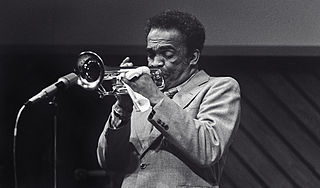
Howard McGhee was one of the first American bebop jazz trumpeters, with Dizzy Gillespie, Fats Navarro and Idrees Sulieman. He was known for his fast fingering and high notes. He had an influence on younger bebop trumpeters such as Fats Navarro.

Irving Sidney "Duke" Jordan was an American jazz pianist.
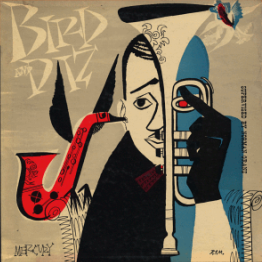
Bird and Diz is a studio album by jazz saxophonist Charlie Parker and trumpeter Dizzy Gillespie. It was recorded primarily on June 6, 1950, in New York City. Two tracks featured on the original pressing, "Passport" and "Visa", were recorded by Parker, without Gillespie and with different personnel than the other tracks, in March and May 1949. The album was originally issued in 1952 in 10" format as a collection of 78 rpm singles on the Verve subsidiary label Clef Records.

This is a list of recordings by American jazz alto saxophonist Charlie Parker ("Bird"). Parker primarily recorded for three labels: Savoy, Dial, and Verve. His work with these labels has been chronicled in box sets. Charlie Parker's Savoy and Dial Sessions have been issued on The Complete Savoy Sessions, Charlie Parker on Dial and Complete Charlie Parker on Dial and The Complete Savoy & Dial Master Takes. His Verve recordings are available on Bird: The Complete Charlie Parker on Verve and The Complete Verve Master Takes.
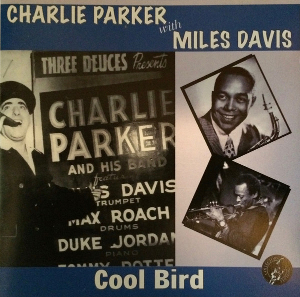
Cool Bird is a compilation album released by Magnum Collectors of recording sessions undertaken during October–December 1947 by Charlie Parker's 'classic quintet' for the Dial label featuring Parker, Miles Davis, Duke Jordan, Tommy Potter and Max Roach. They are joined by J. J. Johnson on six of the 22 tracks.

Donald Douglas Lamond Jr. was an American jazz drummer.

Complete Charlie Parker on Dial is a 1996 box set release of jazz saxophonist and composer Charlie Parker's 1946–47 recordings for Dial Records. The box set, released by Jazz Classics, features 89 songs, including alternate takes and notes composed by jazz historian and Parker biographer Ira Gitler. John Genarri, author of the book Blowin' Hot and Cool: Jazz and Its Critics singles out the recording of "Lover Man" on this album, noting that "[t]his wrenching, anguished version...has been called Parker's most poetic statement on record" though, says Gennari, Parker himself viewed it as substandard and threatened physical violence against Ross Russell, a Dial records producer, for including it. Gennari also indicates that other tracks included on this CD—"Relaxin' at Camarillo", "Cheers", "Stupendous" and "Carvin' the Bird"—"have struck many listeners as his most joyous and optimistic."

Jazz at the Philharmonic – Yoyogi National Stadium, Tokyo 1983: Return to Happiness is a live album that was released in 1983. The album includes Louie Bellson, Eddie "Lockjaw" Davis, Harry "Sweets" Edison, Ella Fitzgerald, Al Grey, J. J. Johnson, Joe Pass, Niels-Henning Ørsted Pedersen, Oscar Peterson, Zoot Sims, and Clark Terry.
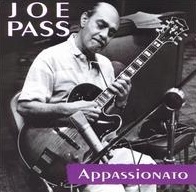
Appassionato is an album by American jazz guitarist Joe Pass that was released in 1991.

Bud Plays Bird is a studio album by the jazz pianist Bud Powell, recorded late 1957/early 1958 for Roulette, but unreleased until 1997, when it was rediscovered by Michael Cuscuna and released by Blue Note as part of The Blue Note Collection.
This article lists Charlie Parker's Savoy and Dial sessions as leader, which were recorded between 1945 and 1948.

The Smithsonian Collection of Classic Jazz is a six-LP box set released in 1973 by the Smithsonian Institution. Compiled by jazz critic, scholar, and historian Martin Williams, the album included tracks from over a dozen record labels spanning several decades and genres of American jazz, from ragtime and big band to post-bop and free jazz.
"Relaxin' at Camarillo" is a composition by jazz saxophonist Charlie Parker. It is inspired by his six-month stay in Camarillo State Hospital in Ventura County, California, after serving a prison term for arson and resisting arrest. The tune is a blues in C major and has become a jazz standard.
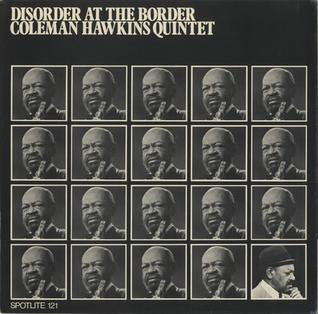
Disorder at the Border is a live album by saxophonist Coleman Hawkins compiling tracks which were originally broadcast in 1952 and first released on LP in 1973 on the UK Spotlite label.
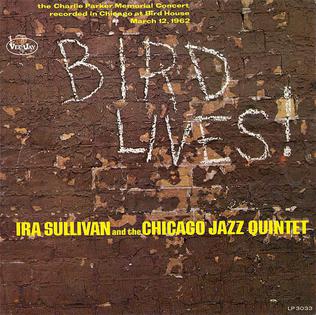
Bird Lives! is a live album by multi-instrumentalist Ira Sullivan which was recorded in Chicago in 1962 and released on the Vee-Jay label on LP before being reissued as a double CD with additional material in 1993.

Young at Heart is an album by trumpeter Howard McGhee and saxophonist Teddy Edwards recorded in 1979 and released on the Storyville label.

Rainbow Mist is an album by the American jazz saxophonist Coleman Hawkins compiling recordings from 1944 originally released by Apollo Records that was released by the Delmark label in 1992.

Relaxin' at Home is an album by jazz pianist Bud Powell, released in 1989 from material recorded by Powell, bassist Michel Gaudry, and Francis Paudras at Paudras' home in Paris between 1961 and 1964.


















